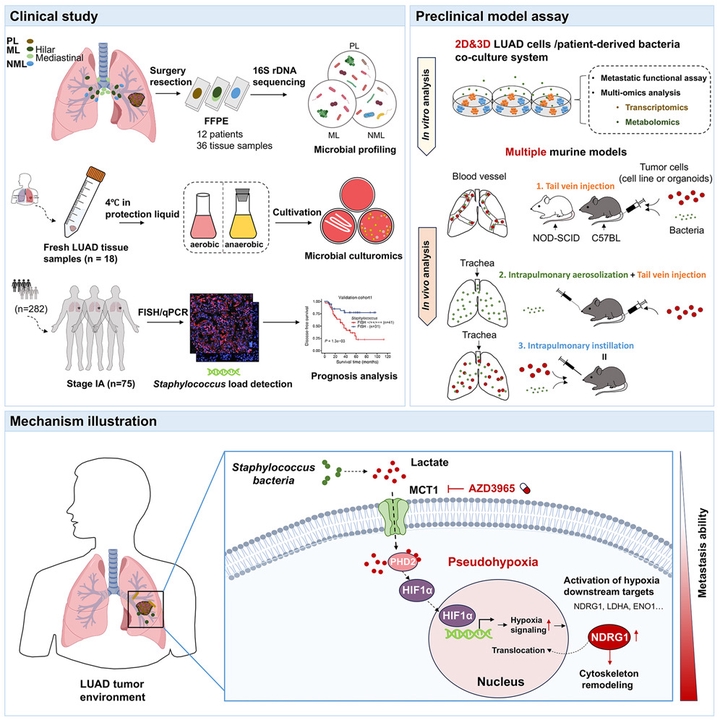The role of the lung microbiota in cancer remains unclear. We reveal that Staphylococcus is selectively enriched in metastatic tumor lesions and is associated with tumor recurrence of lung cancer patients. Using patient-derived bacterial strains, we employ a combination of cell line, organoid, mouse allograft, and xenograft models to demonstrate that S. nepalensis and S. capitis promote the metastatic potential of lung cancer cells. Mechanistically, lactate secreted by S. nepalensis and S. capitis upregulates MCT1 expression in tumor cells, facilitating lactate uptake and activating pseudohypoxia signaling. These effects can be eliminated by knocking out the lactate-producing genes in the bacterial strains, and inhibiting MCT1 attenuates Staphylococcus-induced tumor metastasis both in vitro and in vivo. Collectively, our study demonstrate that tumor-resident Staphylococcus species promote lung cancer metastasis by activating host pseudohypoxia signaling and further identify key regulators as potential targets for therapeutic development.
More details are available in Cell Host & Microbe now.
Lung Cancer Microbiota
